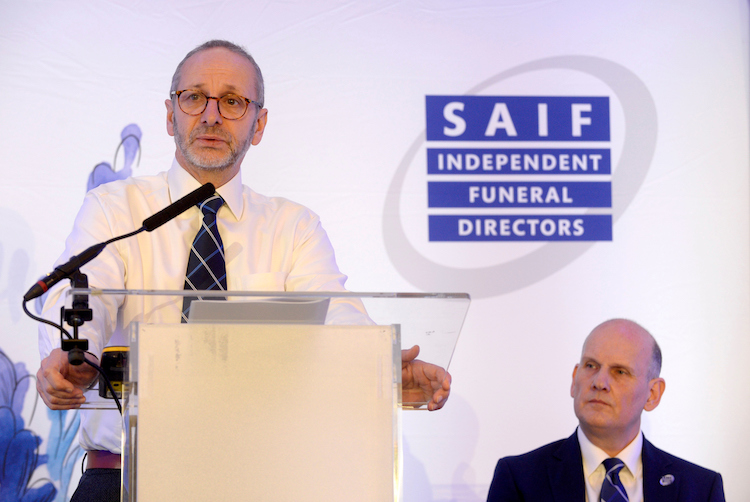The first major step in the regulation of the funeral profession in Scotland has been taken with the approval of a statutory code of practice.
The Scottish Government’s Funeral Director Code of Practice was rubber stamped by the Holyrood parliament on 31 January and businesses have a one-year grace period from 1 March in which to comply fully with the code’s requirements.
Importantly, the code applies to all funeral directors carrying out funerals in Scotland, regardless of where their business is based.
A level playing field for the profession in Scotland
SAIF Scotland’s President James Morris has welcomed the development, which follows several years’ consultation with the sector, describing it as positive news for the profession.
“For years, many of us have been calling for a level playing field in which all funeral directors across Scotland are required to operate to a set of high standards. This new code of practice, whose creation has been informed by our expert government liaison team, does exactly that,” he said.
“It’s also important to note that SAIF has been conscious to align its UK-wide code of practice with the Scottish code, to ensure ease of compliance with the new regulations for small businesses,” James added.
Six key areas to deliver good outcomes for bereaved families
The Scottish Government’s Funeral Director Code of Practice covers six areas of a funeral directing business.
These are:
• engagement of the funeral director and transfer of the deceased
• care of the deceased and premises used by the funeral director
• planning the funeral service according to the wishes of the deceased and the bereaved
• delivery of the funeral
• complaints
• business continuity and managing risks
The aim of the code, which has its legal basis in The Burial and Cremation (Scotland) Act 2016, is to ensure that “every person in Scotland will have a dignified and respectful funeral and bereaved families can be reassured that good standards of care will be provided”.
In the introduction section it describes how adherence to the code will “assist in providing transparency in the goods and services offered to the bereaved”.
The code also seeks to achieve three outcomes, namely minimum standards of care of the deceased, the establishment and promotion of a common understanding of good practice in relation to care of the deceased, and increased transparency of choice of goods and services to help people in Scotland to make informed decisions.
A template for funeral regulation across the UK
Terry Tennens, Chief Executive of SAIF, thanked the Scottish Government’s burials and cremation team for considering the funeral profession’s advice and concerns in drafting the code.
“We are pleased to see Scotland’s statutory code reach approval and implementation. SAIF believes this is a proportionate document that will safeguard the interests of bereaved families without creating challenges for the many small businesses that work tirelessly to provide a high standard of care and support.
“It is actually a very positive template for regulation elsewhere in the country and is testament to what can be achieved when all interested parties take a consultative approach to business governance,” he said.
SAIF encourages funeral directors across the UK to familiarise themselves with Scotland’s new code, as it is an important milestone in the history of the funeral profession and could be replicated across other jurisdictions of the country in time. The code can be viewed at www.gov.scot/publications/funeral-director-code-practice-2/pages/1/

